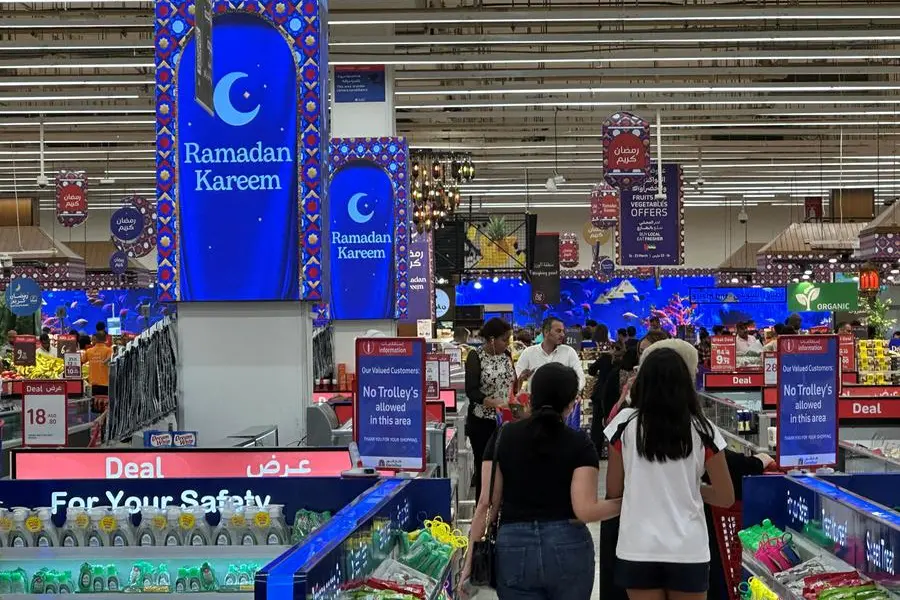PHOTO
Imagine this scenario when budgeting your monthly expenses:
- Dh250 monthly grocery bills.
- A prime villa in Dubai’s Mirdif for as low as Dh20,000 per year.
- Dh200 utility bills per month.
These figures are not a wish list of a UAE resident; they depict the expenses people paid to live in the UAE just a decade ago. However, for long-term residents, costs have risen substantially, leaving many unable to save anywhere near what they could a decade ago.
According to a survey conducted by Cigna Healthcare, almost half of UAE residents consider the ‘cost of living’ to be the primary cause of stress, followed closely by personal and family financial concerns. In the survey, 45 per cent of respondents identified the increasing cost of living as the leading source of stress.
This finding is consistent with the observations of long-time residents in the UAE, who have noticed a substantial increase in expenses across multiple aspects of daily life. Khaleej Times spoke to four residents from diverse backgrounds who have called the UAE home for several years.
What KT found out: Household expenses, from rents to school fees to fuel prices, are shooting through the roof, keeping pace with global inflation. So, here’s what is hitting residents' wallets the hardest.
Grocery
Gorashi Elsheikh, a Sudanese expat working in a civic body authority since 1997, has been fortunate to live in accommodation provided by his employer.
Despite the stability of his housing situation, Gorashi has noticed a significant rise in grocery prices. "I remember that around ten years ago, a monthly grocery bill of Dh250 was sufficient for my family of five. Now, I spend between Dh1,500 and Dh2,000, especially on essential items like meat, milk powder, chicken, sugar, and fresh juices," Gorashi calculated the cost.
Ace, a 50-year-old Canadian expat in the UAE for 21 years, remembers how he managed the basic necessities with Dh100-150 per month. However, with a growing family, his monthly grocery bills have soared. As a result, he has had to change his shopping habits.
"I have had to reassess where I shop to stretch my dirhams,” he said, adding that he switched from shopping at high-end supermarkets to more affordable options. "Choosing where to shop can make a significant difference in costs.”
Rents
Ace has witnessed the rise in rental prices firsthand. He recalls being able to rent a spacious villa in Mirdif for Dh20,000 to Dh30,000 per year in 2002. However, the same property now commands a rental price of nearly Dh300,000.
He eventually decided to purchase his own house to avoid the uncertainty of yearly rent increases. "I have seen friends being forced to move due to skyrocketing rents. Owning a property gives me more control over my destiny and provides stability in uncertain times."
Fuel
The impact of the fuel price hike on Dubai resident Shaji Haneef was particularly hard.
As a frequent traveller abroad, Shaji recalled a conversation while visiting a European country. "It was in a somewhat remote area, and I was chatting with a local," he recounted. "When I mentioned I was from Dubai, the person said, 'Oh, I know Dubai. That's the place where petrol is cheaper than water.' I chuckled because it had never crossed my mind that it could be true.
“In the 2008-2010 time period, the cost of petrol per litre was around Dh1.50, if I remember correctly,” he said. “I was driving a Honda CRV at the time. A full tank would cost me about Dh100. In a month I spent about Dh400 on fuel”
However, Shaji now spends more than four times more on fuel than in 2010. “I drive a LandCruiser, so the fuel consumption has increased,” he conceded. “However, the price of petrol in the UAE has also increased. When the petrol prices were deregulated in 2015, there was a rise. Since then, global price increases have also impacted the fuel rates here. Now, a full tank costs me about Dh250, and I spend roughly Dh1600 monthly.”
School fees
School expenses have become a major concern for expat families. Ace estimates that school fees have risen by around 3-4 per cent annually. Kindergarten fees, for example, have doubled over the years. Ace now pays almost Dh100,000 per year for his children's education.
Utility bills
Maria Santos, a Filipino expat who arrived in Dubai in 1981, recalls paying around Dh200 per month for electricity in the 1990s. Now, it’s around Dh700 or even more, she said.
Over the years, Maria has noticed the prices of everyday essentials, housing, and other necessities rising. "Even basic utilities like electricity, water, and the Internet have seen noticeable price increases."
Savings
These costs have significantly impacted the saving abilities of long-time residents. "Without my property investments, I would struggle to save anything substantial," said Ace. "My expenses have increased by approximately Dh10,000 per month compared to pre-Covid times, resulting in a much smaller portion available for savings."
Maria recalls that when she first came to Dubai, she was able to save a significant portion of her income. "The increasing cost of living has affected my retirement plans. I had hoped to save enough to retire comfortably in Dubai, but achieving that goal has been challenging," she said.
With inputs from Nasreen Abdulla
Copyright © 2022 Khaleej Times. All Rights Reserved. Provided by SyndiGate Media Inc. (Syndigate.info).





















